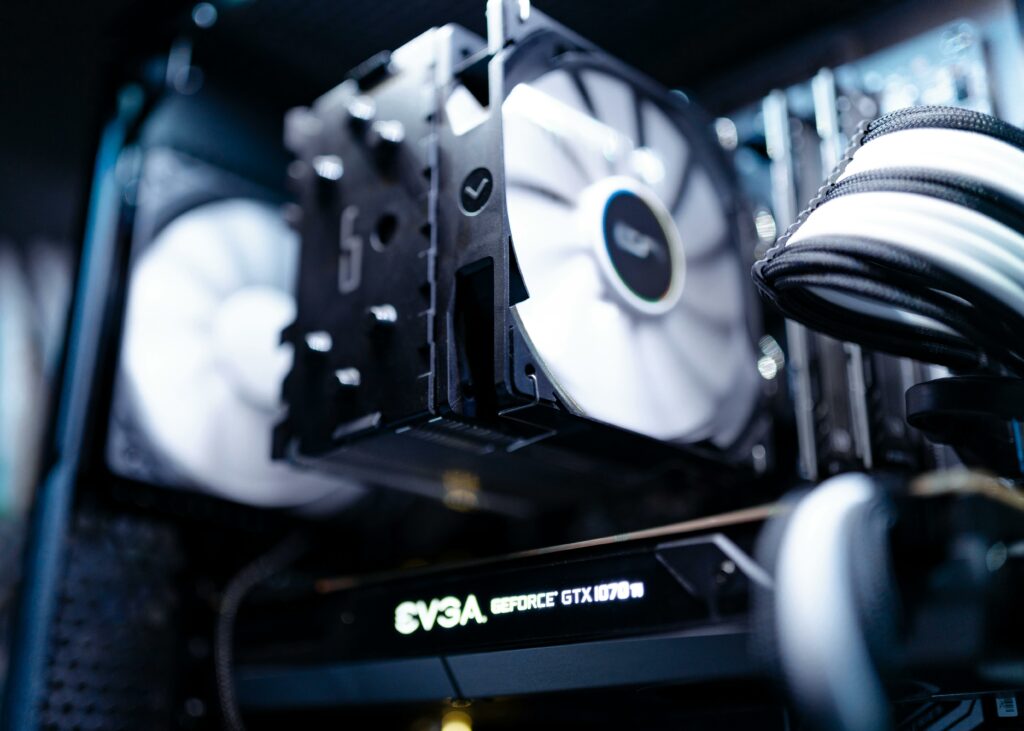Key Takeaways
- C++ for Performance: C++ is ideal for high-performance and graphics-intensive games due to its low-level resource management and extensive use in engines like Unreal Engine.
- C# for Accessibility: C# offers an easier learning curve, especially with Unity, allowing developers to focus more on game design while benefiting from robust frameworks and tools.
- Python as a Beginner-Friendly Option: Python’s simplicity and readability make it excellent for beginners, facilitating quick prototyping and scripting in game development with libraries like Pygame.
- JavaScript in Web Gaming: JavaScript is essential for browser-based games, leveraging frameworks such as Phaser and Three.js to create engaging interactive experiences across multiple devices.
- Performance vs. Ease of Learning: Choosing the right language involves balancing performance needs with ease of learning, as languages like C# and Python are more accessible for new developers.
- Community and Resources Matter: Strong community support and available libraries play a crucial role in the development process, making languages like C++ and C# preferable for quicker troubleshooting and collaboration.
In the fast-paced world of game development, choosing the right programming language can make all the difference. With numerous options available, developers often find themselves weighing the pros and cons of each language to create immersive experiences. From high-performance graphics to user-friendly interfaces, the right language can enhance gameplay and streamline production.
Languages like C++, C#, and Python often come up in discussions about the best tools for game development. Each offers unique features that cater to different aspects of game design, making it crucial for developers to understand their specific needs and goals. This article dives into the top contenders, exploring their strengths and how they can shape the future of gaming.
Best Languages Game Development
Game development relies on several programming languages, each offering distinct advantages that cater to diverse requirements.
C++
C++ excels in performance and efficiency, making it a top choice for high-performance games. Its proximity to hardware allows developers to optimize resources effectively, facilitating complex game mechanics. Many gaming engines, such as Unreal Engine, utilize C++ for its versatility.
C#
C# provides an easier learning curve and is widely used with Unity, a leading game engine. Its robust framework simplifies many tasks, allowing developers to focus on game design rather than low-level programming challenges. C# also offers great support for 2D and 3D game development.
Python
Python stands out for its readability and simplicity, making it suitable for beginners. Though not typically used for low-level development, it finds applications in scripting and automation within game engines. Libraries like Pygame enable rapid prototyping and game development.
Java
Java is highly portable and runs on various platforms, which is advantageous for cross-platform games. Its extensive community support and libraries facilitate game development. Many mobile games leverage Java, particularly Android games.
JavaScript
JavaScript’s prominence in web development extends to game development, with frameworks like Phaser and Three.js. It allows for the creation of browser-based games, providing easy access to a wide audience. Its asynchronous nature supports complex interactions within games.
Rust
Rust is gaining popularity due to its focus on memory safety and performance. Directed towards developers seeking efficiency without sacrificing safety, Rust is ideal for systems-level programming in game engines and real-time applications.
Choosing a programming language depends on project requirements and developer expertise. Each language contributes uniquely to game development, influencing both gameplay experience and production efficiency.
Top Languages for Game Development
Several programming languages dominate the game development landscape, each offering unique strengths tailored to different project needs.
C++
C++ stands out for its performance and control over system resources. Its capabilities allow developers to create high-performance games, making it the preferred choice for complex mechanics and graphic-intensive applications. Major game engines like Unreal Engine utilize C++, enabling detailed graphics and real-time performance. Developers can implement intricate algorithms and optimize memory management effectively, which is crucial for large-scale game projects.
C#
C# is renowned for its accessibility and robust frameworks, particularly in Unity, which supports both 2D and 3D game development. Its object-oriented features and comprehensive library ecosystem simplify coding, making it an ideal language for newcomers and experienced developers alike. C# promotes rapid development cycles through features like garbage collection and easy integration, increasing productivity and allowing teams to focus more on gameplay and creativity rather than complex coding issues.
JavaScript
JavaScript plays a significant role in web-based game development. Its versatility enables developers to create interactive experiences in browsers. Frameworks like Phaser and Three.js leverage JavaScript for building engaging 2D and 3D games, utilizing HTML5 for smooth performance across various devices. The extensive community support and a wealth of resources available enhance developers’ ability to troubleshoot and innovate within the web gaming space.
Python
Python is favored for its readability and simplicity, making it an excellent choice for beginners in game development. Its clear syntax allows developers to prototype quickly, streamlining the design process. While not as performant as C++ or C#, Python excels in scripting and automation tasks, acting as a valuable tool in game development pipelines. Libraries like Pygame provide essential support for creating simple games and beginner projects, facilitating entry into the game development world.
Criteria for Choosing the Best Language
Selecting the best programming language for game development involves evaluating specific criteria critical to project success. These factors include performance, ease of learning, community support, and the availability of libraries and frameworks.
Performance
Performance plays a crucial role in game development. High-performance languages like C++ offer low-level memory management and direct access to hardware. This capability enables developers to create graphic-intensive applications with complex mechanics. C# and Rust also provide strong performance, catering to different development environments, such as Unity and systems programming, respectively.
Ease of Learning
Ease of learning significantly impacts developer productivity. Languages such as C# and Python are designed with user-friendly syntax, making them accessible for beginners. C# integrates seamlessly with Unity, promoting a straightforward learning curve for those new to game development. Python’s simplicity allows for rapid prototyping, enabling developers to focus on game logic rather than syntax intricacies.
Community Support
Community support serves as a valuable resource for game developers. Well-established languages like C++ and C# boast large, active communities that offer extensive documentation, tutorials, and forums. This support network helps developers troubleshoot issues and share knowledge, fostering a collaborative environment that accelerates learning and enhances project execution.
Library and Framework Availability
Library and framework availability influences development efficiency and functionality. Languages like C# benefit from comprehensive frameworks like Unity and MonoGame, which streamline the game development process. C++ provides access to powerful libraries such as Unreal Engine and SFML, enhancing graphical capabilities. JavaScript offers libraries like Phaser and Three.js for web-based games, creating interactive user experiences. Python’s libraries, including Pygame and Panda3D, facilitate quick development cycles, especially for prototyping and educational purposes.

